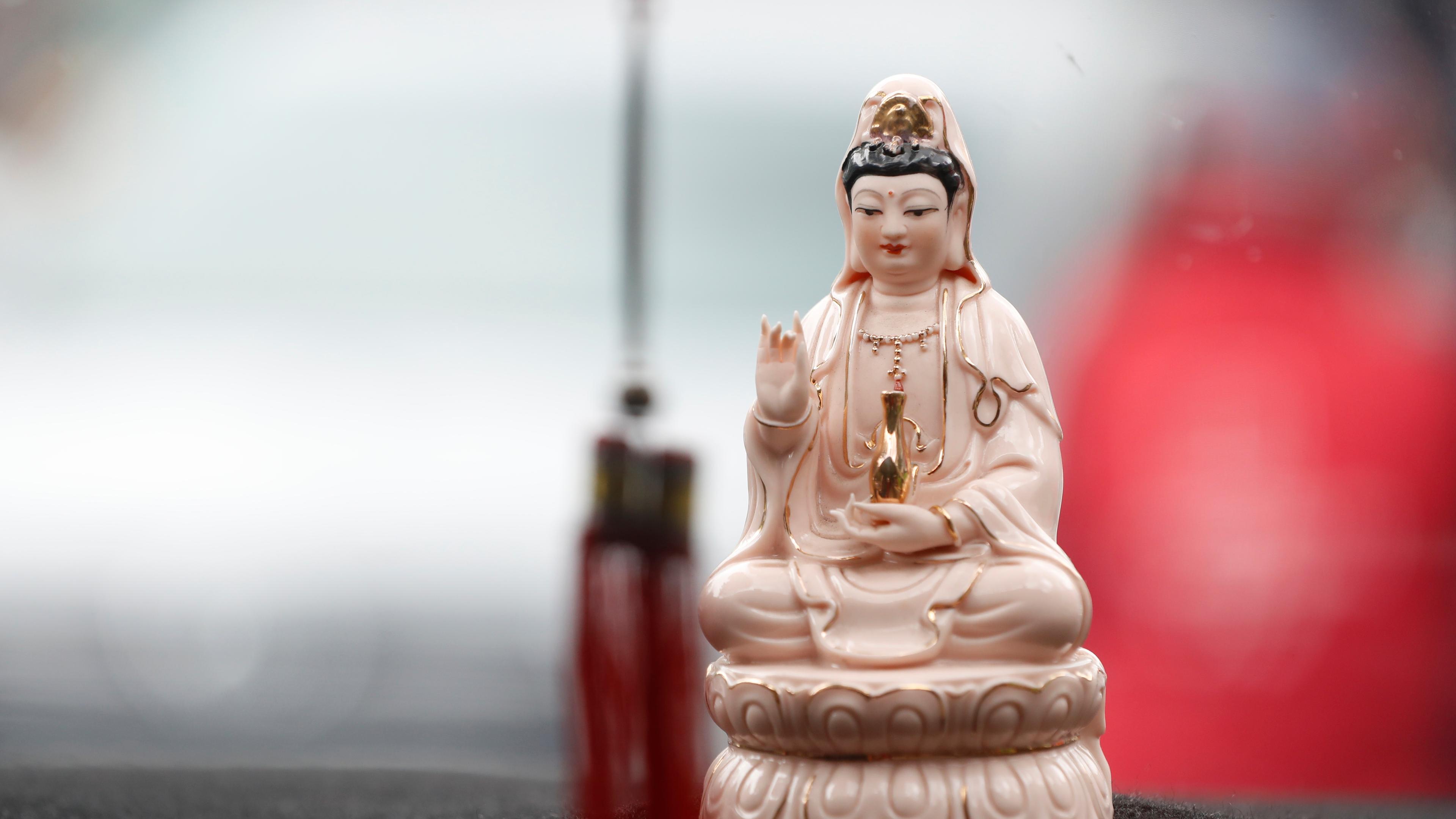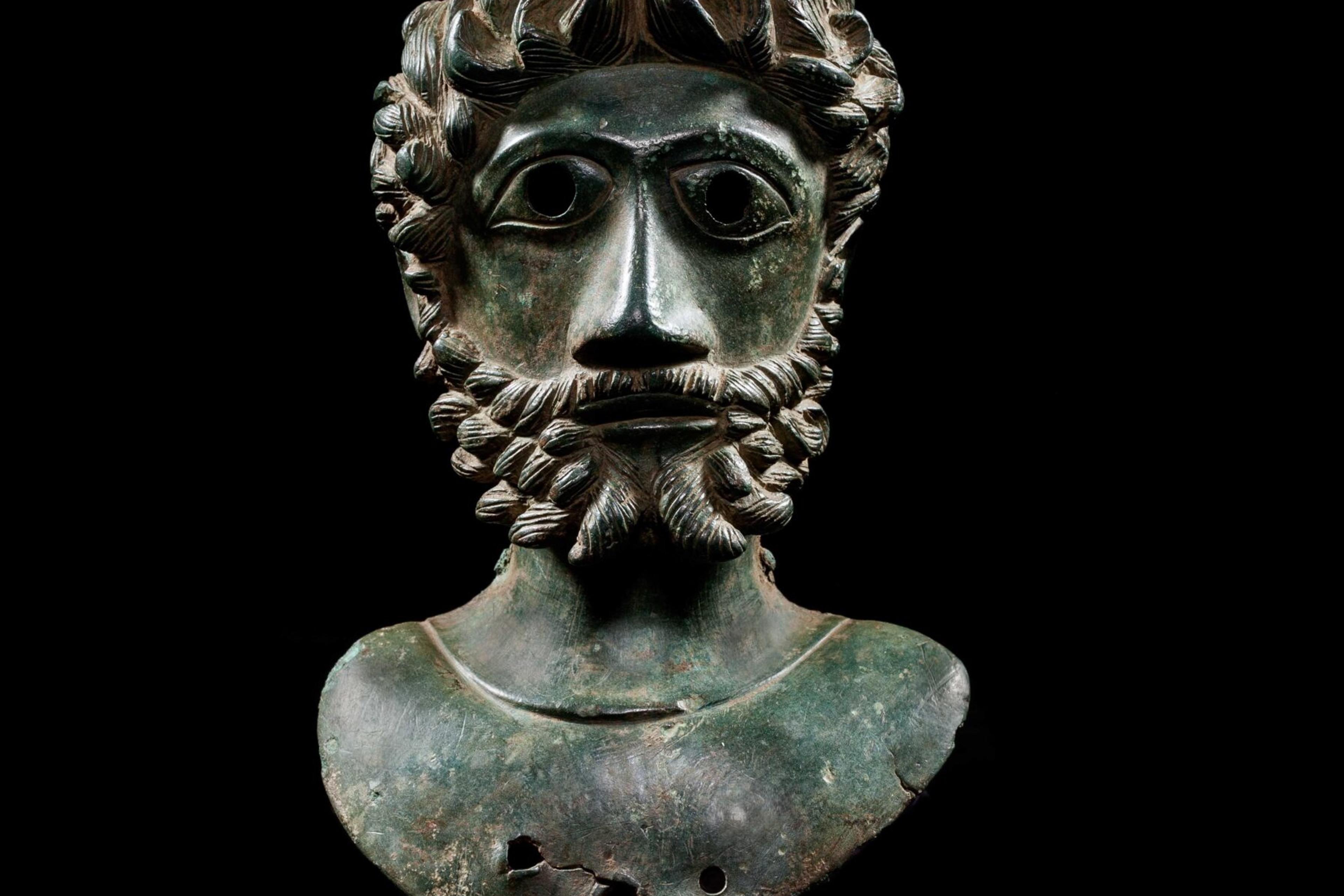You have heard that it was said, ‘You shall love your neighbour and hate your enemy.’ But I say to you, Love your enemies and pray for those who persecute you, so that you may be sons of your Father who is in heaven …
– from the Gospel of Matthew, New Testament
This is what should be done
By one who is skilled in goodness,
And who knows the path of peace …
Let them not do the slightest thing
That the wise would later reprove.
Wishing: In gladness and in safety,
May all beings be at ease.
– from the Karaniya Metta Sutta: The Buddha’s Words on Loving-kindness, translated from the Pali by The Amaravati Sangha © 2004
The idea that you should love your enemies can seem puzzling, if not of dubious coherence. After all, how could you love an enemy? And even if you could, why should you? Wouldn’t feelings of hatred and hostility be more appropriate for an enemy, as for anyone who seeks to do you harm?
Nevertheless, this guidance appears in many different religious and ethical traditions. In Western thought, it is perhaps most closely associated with Christianity and, in particular, the teachings of the New Testament. In that context, an enemy is not merely a violent adversary such as one might face in war, but rather anyone who wrongs you, treats you unkindly, or actively wishes you ill. Moreover, the injunction to love your enemies flows from a more general principle to the effect that you should treat all human beings with love and kindness. In other words, it is a consequence of the commandment to practise universal love.
To love your enemies, in the sense at issue, is not to develop the same feelings of love for them as you might have for your nearest and dearest. It is rather to free yourself of ill will, and to actively wish your enemies well (eg, by means of praying for their wellbeing). Accordingly, the principle that you should love your enemies is far less demanding than it might initially appear.
That said, one might feel the guidance is too demanding still. Many of us already struggle to forgive even those closest to us in the face of perceived transgressions. So, even if it is within our power to love our enemies, there is a real question as to why we should attempt something so arduous.
Some would say that you should love your enemies just because morality requires it. Indeed, this is precisely the sort of answer one would expect from the Christian tradition. But there is also a less obvious response: that you should love your enemies not merely (or, at least, not only) in order to follow the dictates of a moral tradition, but rather out of self-interest, and, in particular, out of respect for your own psychological wellbeing. When viewed from this angle, the guidance to love your enemies no longer appears so oppressive, nor impossibly demanding. On the contrary, it presents itself as a path to freedom; a means of ridding yourself of the weight of resentment and hostility.
As we navigate toward this idea, let’s first consider a quite different perspective, derived from the writings of the philosopher Friedrich Nietzsche. This perspective constitutes a rare and powerful challenge not only to the view that morality requires us to love our enemies, but also to the view that doing so serves our wellbeing.
In On the Genealogy of Morality (1887), Nietzsche says that we can distinguish between what he calls ‘master-moralities’ and ‘slave-moralities’. A ‘master-morality’ values traits like strength, courage, power, wealth and pride; these it designates as ‘good’, and opposing traits it designates as ‘bad’. A ‘slave-morality’, meanwhile, values traits like meekness, humility, poverty and pity; these it designates as ‘good’, and the opposing traits it designates as ‘evil’. Nietzsche believes Christian morality is the latter kind.
In Nietzsche’s view, the principles of Christian ethics are not the products of divine revelation, but rather the all-too-human creation of a people once downtrodden and oppressed – namely, the Jews under the pre-Christian Roman Empire. Indeed, Nietzsche would say that it should really come as no surprise that an oppressed people would develop this kind of morality, given the conditions under which they lived. Of course (the thinking goes) you’ll end up valuing weakness and poverty over power and pride when you are not in a position of dominance and strength. The progenitors of ‘slave-moralities’ are therefore praised by Nietzsche as exemplifying a kind of genius, having transformed the very traits and behaviours forced upon them into moral virtues, while also converting the behaviours and traits of their oppressors into moral vices.
How does this perspective bear on the idea that we should love our enemies? First, it calls into question whether we really are morally required to do so. After all, as Nietzsche sees it, the injunction to love your enemies is not an objective moral principle handed down from God. Rather, it is an entirely human construct; part of an ethical code created by a subjugated people, which sublimates ‘slavish’ traits (like benevolence towards those who ill-treat us) into morally virtuous ones. Second, it calls into question the idea that seeking to love our enemies is in our own interest. Perhaps it serves an oppressed people well to think that it is morally right to love your enemies, for this allows them to reconceptualise as right moral conduct a way of acting that is forced upon them. Yet it does not follow from this that the guidance to love your enemies offers a general path to human flourishing.
On the contrary, Nietzsche would argue that the healthiest human beings are those who cultivate virtues such as courage, pride and strength. And he would claim that those who exemplify these virtues are more likely to hold their enemies in contempt than to show compassion toward them. In fact, Nietzsche is scathing about compassion in general – mitleid in German, also translated as ‘pity’ or ‘sympathy’ – claiming that it serves only to make suffering contagious.
There is something seductive about this line of thought. From a certain vantage point, striving to love your enemies can appear weak and servile; a mode of action, just as Nietzsche sees it, fitting only for those who, in effect, cannot act otherwise. That being said, I want to present a perspective that I think is ultimately more compelling. It is distinct both from the Christian conception that one ought to love one’s enemies because morality requires it, and from the Nietzschean idea that loving one’s enemies is a kind of servility that undermines human flourishing.
The view I have in mind draws on a fundamental idea in Buddhism, namely that the goal of ethics is to provide release from dukkha, a term often translated as ‘suffering’. Avoiding suffering, or dukkha, is a central concept in Buddhism (just as it was in Hinduism and Jainism before it). The main idea is that, in order to avoid suffering, one has to live in the right way, namely by following the teachings of the Buddha.
The term dukkha has no direct translation in English: it can mean pain, unease, unsatisfactoriness, discomfort, etc. But one kind of dukkha that a Buddhist would certainly seek to avoid is the unease that you can be made to feel when someone sets themselves up as your antagonist. The thought here is that feelings of hatred and resentment necessarily weigh heavily upon the soul, and hence involve suffering, which must be alleviated. A key Buddhist insight, moreover, is that this suffering can be alleviated, or avoided altogether, precisely through practising loving kindness even toward those who wrong you; that is to say, through bringing oneself, via meditation and reflection, to love one’s enemies and wish them well.
There is, in fact, a good deal of empirical evidence, drawn from contemporary research in psychology, that speaks in favour of this perspective. In particular, there’s much evidence to suggest that practising forgiveness toward those who wrong you can lead to greater feelings of wellbeing. However, it is also possible to appreciate the force of this idea a priori. Consider some advice (which I’ll paraphrase) from Buddhaghosa, the 5th-century Buddhist commentator, in his work, the Visuddhimagga. He compares harbouring feelings of anger to grasping a hot ember with the intent of throwing it at someone else – the first (and perhaps only) person who gets burned is you. The point is intuitively powerful: anger and resentment will primarily hurt the person who holds on to these emotions; the path to peace and tranquillity, meanwhile, involves letting go of these negative emotions even toward those who have done you wrong. We might also note that, intuitively, this is a mark against the Nietzschean position outlined above. For what that position fails to acknowledge is precisely the emotional burden that goes along with failing to let go and to forgive.
There is a related idea in ancient Greek philosophy, namely that living well requires finding a state of ataraxia – of tranquillity and serenity, a place free from anxiety and stress. This was not only a belief held in common by the various different Greek philosophical schools (Pyrrhonism, Stoicism, Epicureanism, etc), but also parallels in an obvious way the Buddhist idea that living well involves avoiding suffering. Moreover, it helps further the case for thinking that we should practise loving kindness toward our enemies in the interest of our own wellbeing. After all, if one is perpetually burdened by resentment and anger, then one has not achieved a state of ataraxia. However, those who practise loving kindness towards their enemies – and who thereby, at least in some sense, free themselves of those enemies (for arguably one has enemies only when there is mutual ill will) – thereby move closer to a state of tranquillity and peace.
The Roman emperor and Stoic philosopher Marcus Aurelius advised that the best revenge against an enemy is to not be like them. As I interpret this remark, the claim is really that the best reaction to an aggressor is to avoid seeking vengeance. Instead, one should focus on being a good person oneself, and in the meantime wish even enemies well. If you do this, you might deprive yourself of the satisfaction of vengeance. But the reward may be a lightness of soul that you would not otherwise have, and hence the kind of peace and tranquillity that is essential to living well.
This Idea was made possible through the support of a grant to Aeon+Psyche from the John Templeton Foundation. The opinions expressed in this publication are those of the author and do not necessarily reflect the views of the Foundation. Funders to Aeon+Psyche are not involved in editorial decision-making.








